A brief introduction to the main coffee producing areas in Central America and their well-known representative coffee flavor characteristics
For professional baristas, please follow the coffee workshop (Wechat official account cafe_style)
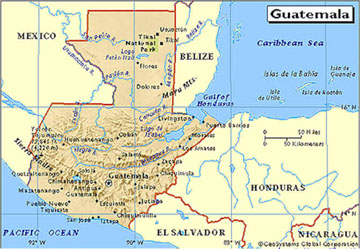
Guatemala (Guatemala) famous representative coffee: Antigua (Antigua), Vivette Nango (Huehuetenango)
The latitude of Guatemala is about 15 degrees, bordering the Pacific Ocean on the left and the Caribbean Sea on the right. The Sierra Mountains on this side of the Pacific Ocean are the main coffee-growing areas in Guatemala. Because the mountains are very long and the regional climate changes greatly, it has created the seven major coffee producing areas of the country, each with different flavors and characteristics. Among them, the coffee from Antigua is famous in the world because of its slightly sour, rich glycol and slightly volcanic charcoal flavor. The coffee of Guatemala belongs to Arabica, which is treated with water. In the far northwest, there is a piece of Huehuetenango highland. Because it is higher than 5000 feet above sea level, the coffee produced has the characteristics of hard texture, strong acidity and rich taste of high altitude coffee. It is also one of the most distinctive coffee in Guatemala.
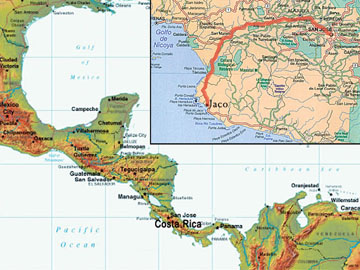
Costa Rica (Costa Rica) famous representative coffee: Tarrazu
Like other Central American countries, coffee from Arabica is widely grown in Costa Rica. Its coffee is mainly grown in two high areas, one is the high area near the capital San Jose, and the other is the Tarrazu mountains southeast of San Jose. Because it is also grown at high altitude, Costa Rican coffee also has a strong sour taste, and because the mountain temperature is lower, coffee trees grow more slowly, with a more complex and not monotonous taste. The coffee produced in Tarasu is also one of the coffee tasters' favorite because of its special flavor of fruit and some chocolate or stone fruit.
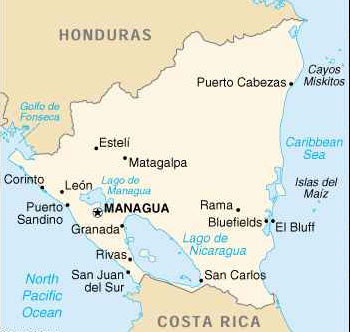
Nicaragua (Nicaragua) well-known representative coffee: Nicaragua
Nicaraguan coffee is mainly produced in the central and northern parts of the country, with shade planting as its characteristic, while coffee beans are washed and dried in the sun. Generally speaking, Nicaraguan coffee is less distinctive, so Nicaraguan beans are often used as mixed coffee or instant coffee. However, high-quality Nicaraguan beans such as Maragogipe (a tree with very large coffee beans called elephant beans) think highly of it because it tastes more balanced and does not have the distinct acidity of other Central American coffee, but has a clear taste and excellent aroma. This round and soft texture also makes it a unique show in the mediocre evaluation of Guatemalan coffee and is loved by many people.
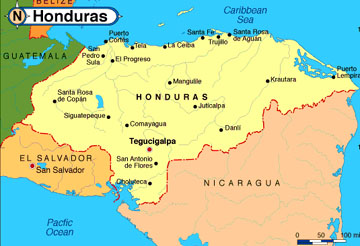
Honduras (Honduras) famous representative coffee: Honduras
Honduran coffee seems strange to many coffee drinkers. For coffee production, the geographical conditions of Honduras are no less than those of its neighboring coffee-producing countries such as Guatemala and Nicaragua. However, in the past, Honduras was less well-known in the consumer market because it did not have strong support in the handling and transportation of raw beans. However, in recent years, Hongguo has begun to change dramatically, and the emphasis on the coffee industry in Honduras has slowly opened up the international popularity of Honduran coffee. There are six main coffee producing areas in Honduras, including Santa Barbara, Copan, Ocotepeque, Lempira, La Paz, and El Paraiso in the southeast, which are adjacent to each other in the west. Honduran coffee tastes less acidic, while caramel is more sweet. The taste of coffee from these five different producing areas is also slightly different, some slightly sour, some have a unique flavor. At present, its quality is not poor, but because it is still promoting its popularity, Hongguo's coffee prices are actually quite competitive at present. Because of its flavor characteristics, it is a good choice to make a single product or add comprehensive coffee, or even one of the beans with Espresso ingredients.
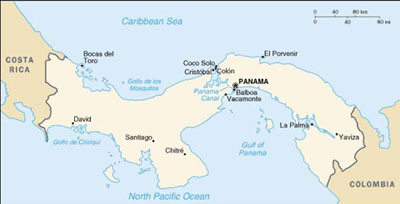
Panama (Panama) famous Coffee: Panama
Panama is bordered by Costa Rica to the west and Colombia in South America to the east. Most of its coffee is grown in the mountains near Costa Rica to the west. Panamanian coffee is medium and uniform in flavor and texture, with a blue mountain-like temperament, so it is often said that Panamanian coffee is often imitated as the high-priced Kona of Hawaii or the Blue Mountains of Jamaica. However, Panamanian coffee has always been in the middle and low price level in the consumer market, which may not have a distinctive relationship. However, in recent years, Panama has also actively promoted the cause of boutique coffee and sold its high-quality coffee beans at competitive auctions, so Panamanian coffee has gradually attracted the attention of the world again. Good Panamanian beans are considered by coffee connoisseurs to be one of the excellent coffee with their clean, clear, bright and gentle taste and medium mellow performance.
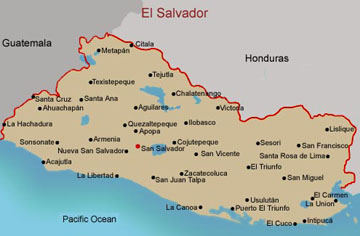
El Salvador (El Salvador) well-known representative coffee: El Salvador
El Salvador, with its upland topography, is the smallest country in Central America, flanked by Guatemala and Honduras. Because there are two parallel mountains in the country, the volcanic soil is rich in minerals, and this special geographical environment makes El Salvador suitable for growing coffee. The coffee tree in El Salvador is Arabica, which is mainly divided into Bourbon and Pacas. Its coffee is refreshing and uniform, which is divided into three grades according to altitude, namely SHG (Strictly High Grown), SG (High Grown) and SC (Central Standard). It is worth mentioning that El Salvador produces a hot spring coffee, named because of the use of hot spring water for washing treatment, its special and supple sour taste and sweet smell is very charming, because the low yield makes the unit price quite high, is its very characteristic coffee.
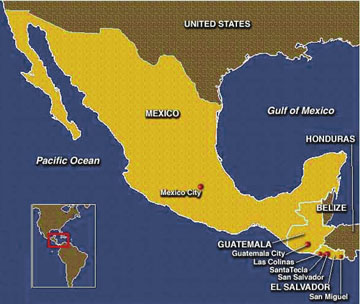
Mexico (Mexico) famous representative coffee: Mexico
Mexico is close to the north of the United States, and its coffee production ranks fourth in the world, mainly in the southeast adjacent to the Vivette Nango highlands of Guatemala. Brother Mo, about 70% of his coffee is exported directly to the United States, which is washed and divided into three grades according to their height. Generally speaking, Mexican coffee is evaluated as moderate aroma and mild mellow. Among them, the coffee beans produced by the giant elephant bean tree Maragogipe (also known as Maragogype) are not only three times larger than the average, but also famous for their mellow and round taste.
Important Notice :
前街咖啡 FrontStreet Coffee has moved to new addredd:
FrontStreet Coffee Address: 315,Donghua East Road,GuangZhou
Tel:020 38364473
- Prev
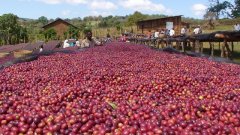
Description of the flavor and flavor of coffee treated with very hard bean red honey in the Diamond Mountain of Tarazhu, Costa Rica
Professional barista communication please follow the coffee workshop (Wechat official account cafe_style) product name: Costa Rica Tara Pearl Diamond Mountain very hard bean red honey (Costa Rica Tarrazu SHB Montanas del Diamante Red Honey) flavor description: sweet jujube, brown sugar and sugar cane sweet, caramel cocoa, round sour, smooth taste. Country: Costa Rica
- Next
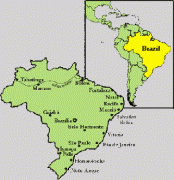
A brief introduction to the main coffee producing areas in South America and their well-known representative coffee flavor characteristics
For the exchange of professional baristas, please follow the coffee workshop (Wechat official account cafe_style) Brazil (Brazil) well-known representative coffee: Santos Brazil is the world's largest coffee producer, with the first total output in the world, accounting for about 1 gambit 3 of the global total output, mainly produced in the central and southern provinces. Brazil is a suitable area for growing coffee, with flat terrain and coffee plantations.
Related
- Does Rose Summer choose Blue, Green or Red? Detailed explanation of Rose Summer Coffee plots and Classification in Panamanian Jade Manor
- What is the difference between the origin, producing area, processing plant, cooperative and manor of coffee beans?
- How fine does the espresso powder fit? how to grind the espresso?
- Sca coffee roasting degree color card coffee roasting degree 8 roasting color values what do you mean?
- The practice of lattes: how to make lattes at home
- Introduction to Indonesian Fine Coffee beans-- Java Coffee producing area of Indonesian Arabica Coffee
- How much will the flavor of light and medium roasted rose summer be expressed? What baking level is rose summer suitable for?
- Introduction to the characteristics of washing, sun-drying or wet-planing coffee commonly used in Mantenin, Indonesia
- Price characteristics of Arabica Coffee Bean Starbucks introduction to Manning Coffee Bean Taste producing area Variety Manor
- What is the authentic Yega flavor? What are the flavor characteristics of the really excellent Yejasuffi coffee beans?

